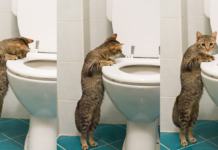Introduction
As loving and responsible cat owners, it’s essential to be aware of common feline health issues that our furry companions may face. While cats are generally resilient creatures, they are still susceptible to various illnesses that can impact their well-being. In this article, we will explore some of the most common cat illnesses, understand their symptoms, and seeking prompt veterinary care when needed.
1. Upper Respiratory Infections (URIs)
Upper respiratory infections are prevalent in cats, especially in multi-cat households or shelters. Commonly caused by viruses or bacteria, URIs can lead to symptoms such as sneezing, nasal discharge, coughing, and conjunctivitis. While most cases are mild and resolve with proper care, severe infections may require veterinary attention and supportive treatment.
2. Feline Lower Urinary Tract Disease (FLUTD)
FLUTD encompasses a range of urinary tract issues in cats, including urinary stones, bladder infections, and urethral blockages. Symptoms may include frequent urination, straining to urinate, blood in the urine, and vocalization during urination. FLUTD can be a serious and painful condition, necessitating immediate veterinary care to prevent complications.
3. Gastric Disturbances
Cats can experience various gastrointestinal problems, such as vomiting and diarrhea. These issues can be caused by dietary indiscretion, dietary changes, infections, or underlying health conditions. If a cat’s vomiting or diarrhea persists for more than a day or is accompanied by other concerning symptoms, it’s crucial to seek veterinary evaluation.
4. Dental Disease
Dental problems, including gingivitis, periodontal disease, and tooth decay, are common in cats. Dental issues can cause discomfort, difficulty eating, and even lead to systemic health problems if left untreated. Regular dental care, including tooth brushing and dental check-ups, can help maintain your cat’s oral health.
5. Parasitic Infestations
External parasites like fleas and ticks, as well as internal parasites like worms (such as roundworms and tapeworms), can affect cats. Parasitic infestations can lead to itching, skin irritation, anemia, and other health complications. Preventive measures, regular check-ups, and prompt treatment are essential to protect your cat from parasites.
6. Feline Viral Diseases
Feline viral diseases, such as feline leukemia virus (FeLV) and feline immunodeficiency virus (FIV), can weaken a cat’s immune system, making them more susceptible to other infections. These viral infections are serious and have no cure, so prevention through vaccination and keeping infected cats isolated is crucial.
7. Chronic Kidney Disease (CKD)
Chronic kidney disease is a common ailment in older cats, affecting their kidney function over time. Early detection and proper management, including a kidney-friendly diet, can help slow the progression of the disease and improve the cat’s quality of life.
Conclusion
Being knowledgeable about common cat illnesses is essential for any cat owner. Regular veterinary check-ups and immediate attention to any concerning symptoms can significantly impact a cat’s overall health and well-being. As responsible caregivers, we must prioritize our feline friends’ health, ensuring they lead happy and healthy lives by our side.



